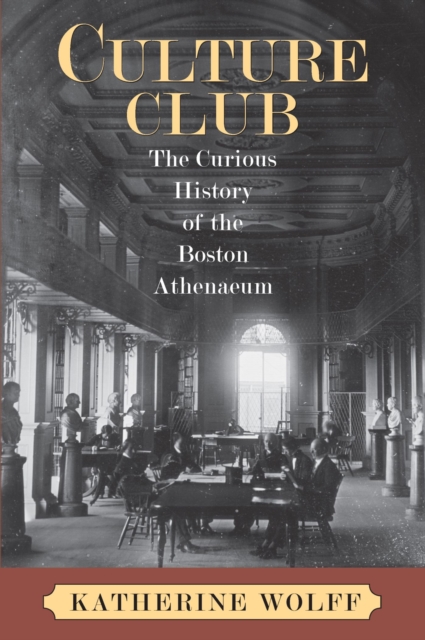
Culture Club : The Curious History of the Boston Athenaeum Paperback / softback
by Katherine Wolff
Paperback / softback
Description
This work examines the genesis and early development of one of the nation's most vibrant cultural institutions.
Founded in 1807, the successor to a literary club called the Anthology Society, the Boston Athenaeum occupies an important place in the early history of American Intellectual life.
At first a repository for books, to which works of art were later added, the Athenaeum attracted over time a following that included such literary luminaries as Ralph Waldo Emerson and Henry James.
Yet from the outset, Katherine Wolff shows, the Boston Athenaeum was more than a library; it was also a breeding ground for evolving notions of cultural authority and American identity.
Though governed by the Boston elite, who promoted it as a way of strengthening their own clout in the city, the early Athenaeum reflected conflicting and at times contradictory aims and motives on the part of its membership.
On the one hand, by drawing on European aesthetic models to reinforce an exalted sense of mission, Athenaeum leaders sought to establish themselves as guardians of a nascent American culture.
On the other, they struggled to balance their goals with their concerns about an Increasingly democratic urban populace.
As the Boston Athenaeum opened its doors to women as well as men outside its inner circle, it eventually began to define itself against a more accessible literary institution, the Boston Public Library.
Told through a series of provocative episodes and generously illustrated, ""Culture Club"" offers a more complete picture than previously available of the cultural politics behind the making of a quintessentially American institution.
Information
-
Out of Stock - We are unable to provide an estimated availability date for this product
- Format:Paperback / softback
- Pages:256 pages, 28 illustrations
- Publisher:University of Massachusetts Press
- Publication Date:30/09/2009
- Category:
- ISBN:9781558497146
Information
-
Out of Stock - We are unable to provide an estimated availability date for this product
- Format:Paperback / softback
- Pages:256 pages, 28 illustrations
- Publisher:University of Massachusetts Press
- Publication Date:30/09/2009
- Category:
- ISBN:9781558497146






